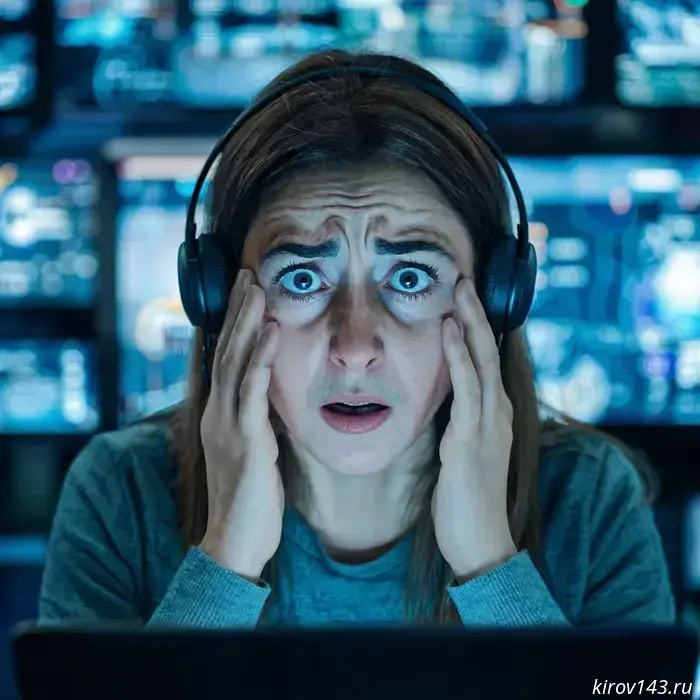
The psychologist explained how neural networks drive people crazy.
Modern technologies, including artificial intelligence, are increasingly permeating daily life, changing habits and people's psychological states. Clinical psychologist Marina Shcheglova warns that neural networks and chatbots can both support and harm mental health, especially when used uncontrollably, reports volga.news.
Risks of dependence and anxiety
Research shows that communication with AI interlocutors can lead to addiction, particularly among individuals who struggle with real-life social interactions. Low self-esteem and increased anxiety cause users to return to chatbots, receiving dopamine reinforcement from their empathetic responses.
Although short-term interactions help reduce stress, prolonged conversations with virtual assistants amplify feelings of loneliness and anxiety. Psychologists compare this effect to addiction to social networks or video games.
Benefits and harms for cognitive functions
On one hand, AI facilitates routine tasks and accelerates creative processes. On the other hand, constant use of neural networks worsens memory, reduces analytical abilities, and fosters a habit of relying on machines. Lack of access to digital assistants can cause anxiety and decrease motivation.
How to recognize harm from interacting with AI?
Warning signs:
- Mood deterioration when unable to access the chatbot;
- Long interaction sessions (more than 30 minutes per day);
- Preference for virtual dialogue over real communication;
- Ignoring problems at home or work.
Special risks for children and adolescents
For younger children, chatbots are dangerous because they hinder the development of communication skills and critical thinking. Teenagers, due to a lack of self-regulation, may emotionally attach themselves to virtual interlocutors, replacing support from loved ones.
“Neural networks can both help and harm — it all depends on how they are used. It is important to maintain a balance between the digital and real world, especially when it comes to children,” emphasizes Marina Shcheglova, clinical psychologist at the Digital Clinic of VSK Insurance House.
Experts recommend limiting interaction time with AI and not replacing live communication with it to preserve mental health.
Другие Новости Кирова (НЗК)
 Residents of Kirov will be able to see the ISS passes.
The station will resemble a rapidly moving star.
Residents of Kirov will be able to see the ISS passes.
The station will resemble a rapidly moving star.
 In Pobedilovo, they explained why planes will be circling around the airport.
The public account of Kirov Airport Pobedyvalo urged Kirov residents to stay calm.
In Pobedilovo, they explained why planes will be circling around the airport.
The public account of Kirov Airport Pobedyvalo urged Kirov residents to stay calm.
 In the colonies of the Kirov region, diplomas were awarded to 142 convicts.
Some graduates have passed the USE and are preparing to acquire their professions.
In the colonies of the Kirov region, diplomas were awarded to 142 convicts.
Some graduates have passed the USE and are preparing to acquire their professions.
 Vladimir Zhuravlev: Serving the governor — not serving the people?
The deputy intends to propose the reinstatement of elections for the head of the city administration and the Duma (mayor).
Vladimir Zhuravlev: Serving the governor — not serving the people?
The deputy intends to propose the reinstatement of elections for the head of the city administration and the Duma (mayor).
 Gardens of Memory: from School Initiative to Folk Movement
On July 1, the directors of schools from the Kirov region who participate in the patriotic movement "Gardens of Memory" visited Deputy of the State Duma Oleg Valenchuk.
Gardens of Memory: from School Initiative to Folk Movement
On July 1, the directors of schools from the Kirov region who participate in the patriotic movement "Gardens of Memory" visited Deputy of the State Duma Oleg Valenchuk.
 It is known whether traffic jams are expected in Kirov on July 2nd.
The regional State Traffic Safety Inspection reported on road congestion on Wednesday.
It is known whether traffic jams are expected in Kirov on July 2nd.
The regional State Traffic Safety Inspection reported on road congestion on Wednesday.
The psychologist explained how neural networks drive people crazy.
According to the expert, it is recommended to communicate with chatbots for no more than 30 minutes a day.
